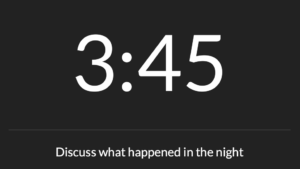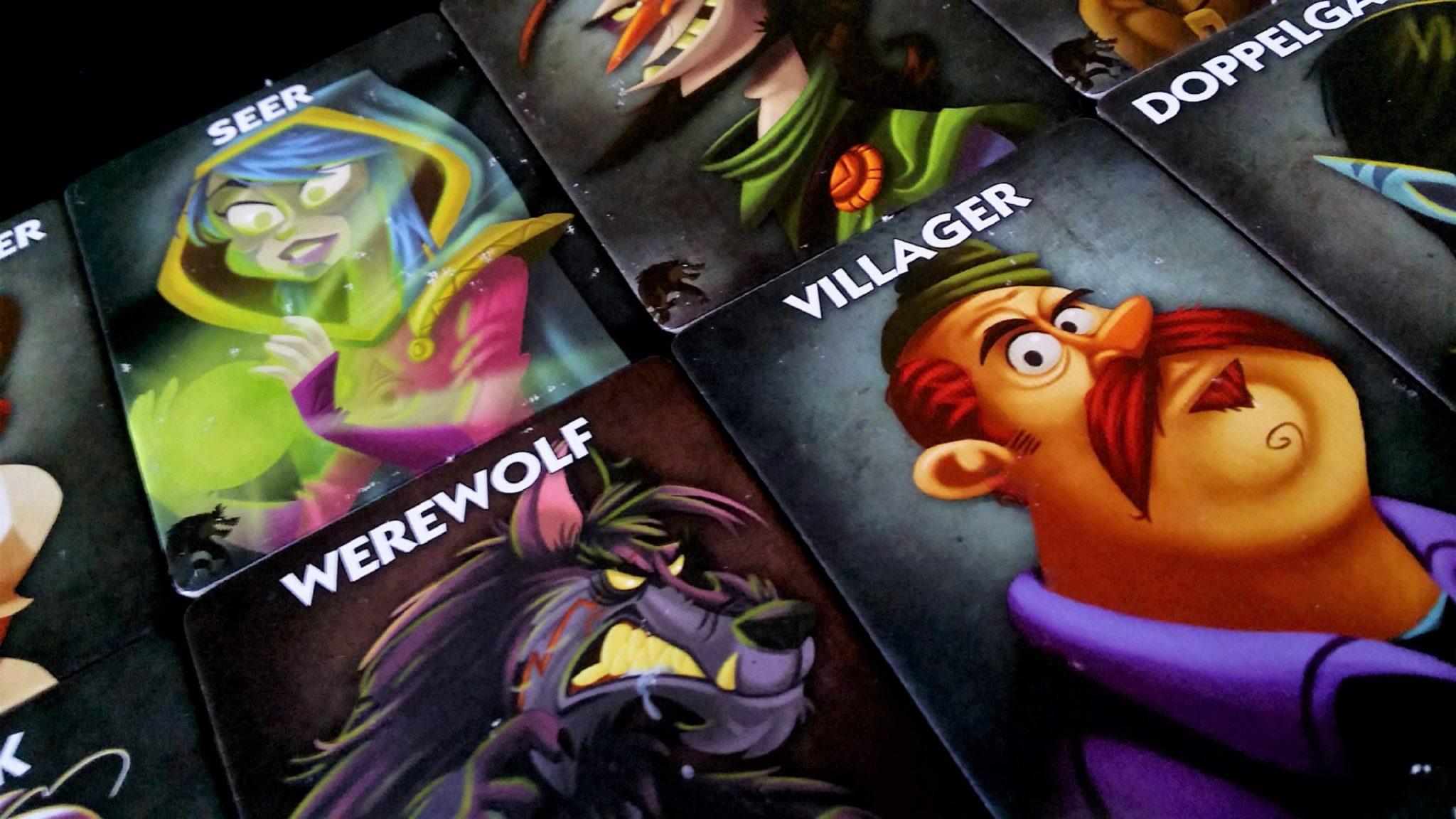For my Critical Play, I chose to play the game One-Night Ultimate Werewolf (ONUW) on my laptop using netgames.io, created by Luke Tsekouras. ONUW is a social deduction card game based on the card game Ultimate Werewolf, designed by Ted Alspach and published by Bézier Games. The online version of the game I played required at least three players to start, and each player had a role either as a villager, werewolf, or some other specialized role such as a Paranormal Investigator or Hunter. The premise of the game is for villagers to correctly identify and vote out werewolves, and for werewolves to deceive the players and stay alive. The mechanics of ONUW, such as the single-round format, role-swapping, and self-facilitated gameplay, emphasize the social deduction aspect of the game by intensifying the focus on player interaction, deception, and the analytical deduction of others’ roles.
One mechanic I identified while playing ONUW is its single-round format. Specifically, ONUW developed over a single night, with only one round of plot development, voting, and elimination; at the end of the night, players find out who wins, whether it is the werewolf team or the villager team. This singular, streamlined round contrasts with the multi-round nature of similar games like Mafia, where the cycle of plot development, voting, and elimination repeats until one group wins. A notable consequence of ONUW’s single-round mechanic is the significant reduction in game length, with each session capped by a brief discussion period, set to a 5-minute timer.
In my experience, I believe the accelerated format enhanced gameplay in several ways. First, the brevity of each game allowed for multiple, non-related sessions to occur within a short time frame, catering to modern attention spans and mitigating the sense of dullness and boredom that can sometimes arise from the longer durations typical of full Mafia and Ultimate Werewolf games. Secondly, it also fostered inclusivity, in that, players eliminated early in Mafia often experience prolonged periods of inactivity, but with ONUW, its single-round structure ensures that all participants remain engaged throughout the entirety of the game.

Also, both the implementation of the 5-minute discussion timer and the concise game cycle elevated the importance of each round. Knowing that each round was separate and non-related from the next raised the stakes for players from the start because players were immediately propelled into utilizing their deduction skills. The time constraint imposed by the timer similarly injected a sense of urgency, motivating players to act decisively.
Another mechanic I noted was the role-swapping mechanic. Unlike traditional Mafia where the roles are fixed, ONWU allowed certain roles to alter the roles of other players during the night phase without them even knowing. For example, the Paranormal Investigator’s role is defined as follows: “During the night, you make look at up to two players’ cards. If you see a card that is not on the Villager team, you stop and become a copy of the card you saw (but don’t perform its night action),” and the Mystic Wolf is defined as a “Werewolf that may also see a player’s card.” This mechanic injects a layer of uncertainty into the game, as players cannot be sure of their roles or those of other players until the game concludes, and it makes the process of deciphering the true role of each player even more complex than before.

Lastly, an important mechanic of ONUW is its self-facilitated gameplay, different from Mafia where there is a need for a player to take on the neutral role of moderator. By relying on technology to automate these tasks and instructing players when to perform their roles’ actions through written instructions, ONUW enhances the social deduction aspect of the game by ensuring that every player is directly involved in the unfolding narrative without the detachment a moderator role might introduce. While this has some benefits such as fostering more inclusivity by ensuring that all players have an equal stake in the game’s final outcome and can thus contribute to the social deduction aspects of the game and enhancing the game’s accessibility since there is no longer a need for any one player to familiarize themselves extensively with the rules of the game, the mechanic’s reliance on technology over a human moderator brings a significant change to the game’s atmosphere. The human moderator in Mafia-like games offers a personal touch that enhances the storytelling aspect of each round. It makes revelations and game progressions feel more impactful, as they are delivered by someone physically present, crafting a narrative in real-time. The shift to an automated system, in my experience, felt like it was lacking some of the charm and warmth that human interaction contributes to the game.



